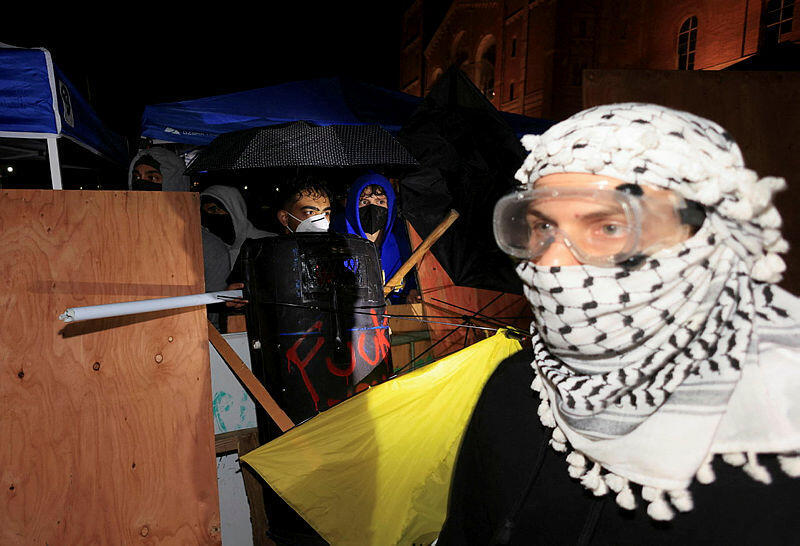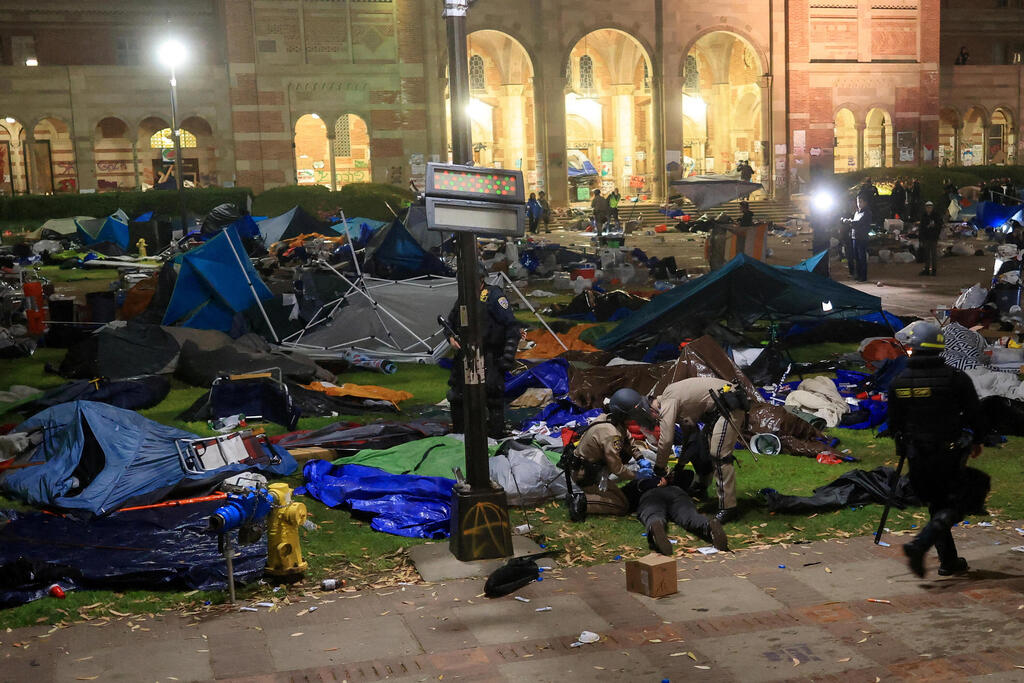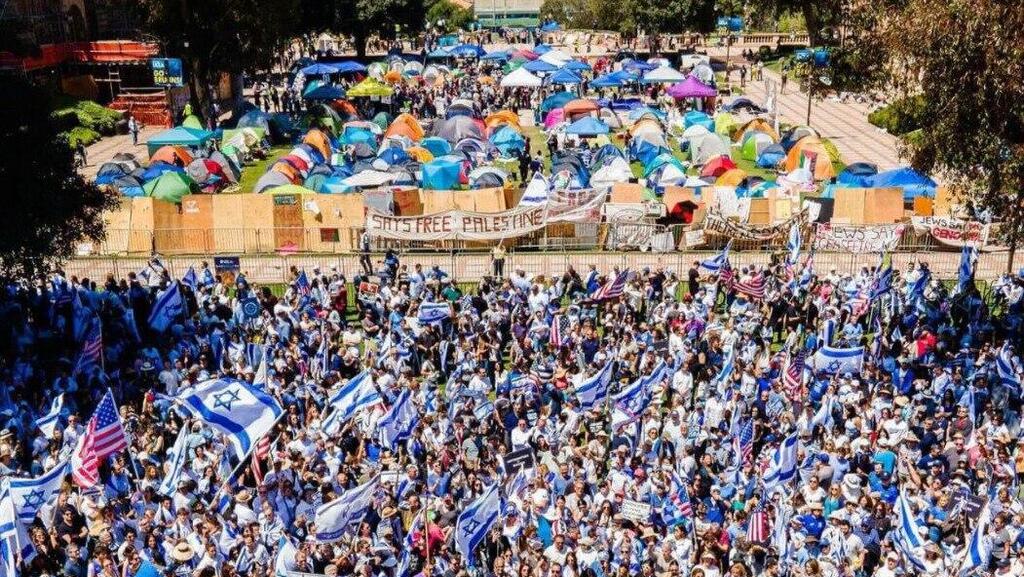Getting your Trinity Audio player ready...
In a landmark decision, a federal court in Los Angeles has ruled that the University of California, Los Angeles (UCLA) cannot permit pro-Palestinian demonstrators to block Jewish students from accessing campus facilities. This ruling, the first of its kind in the United States, sets a significant legal precedent amid ongoing debates over free speech and religious discrimination on college campuses, especially in the context of the Gaza war that erupted after the October 7th attacks.
The case was brought forward by three Jewish students who alleged they faced discrimination during campus protests against the Israel-Gaza conflict. The protests reportedly led to Jewish students being physically barred from parts of the UCLA campus unless they disavowed their faith.
U.S. District Judge Mark Scarsi, who issued the ruling, strongly criticized UCLA's handling of the situation. “In the year 2024, in the United States of America, in the State of California, in the City of Los Angeles, Jewish students were excluded from portions of the UCLA campus because they refused to denounce their faith,” he stated.
3 View gallery


Protesters in support of Palestinians in Gaza stand inside an encampment on the campus of the University of California, Los Angeles (UCLA)on May 1, 2024
(Photo: REUTERS/David Swanson)
The judge emphasized that such exclusion is both unimaginable and a violation of constitutional guarantees of religious freedom. “This fact is so unimaginable and so abhorrent to our constitutional guarantee of religious freedom that it bears repeating, Jewish students were excluded from portions of the UCLA campus because they refused to denounce their faith. UCLA does not dispute this. Instead, UCLA claims that it has no responsibility to protect the religious freedom of its Jewish students because the exclusion was engineered by third-party protesters,” he added.
Although the injunction specifically prohibits the blocking of Jewish students, the ruling effectively bans the obstruction of all students, enforcing a non-discriminatory standard. This broader application is expected to significantly limit UCLA's ability to authorize large protest encampments and mass demonstrations on campus, as any blockage must now apply equally to everyone.
3 View gallery


Law enforcement officers detain a demonstrator, as they clear out the protest encampment at the University of California Los Angeles (UCLA), on May 2, 2024.
(Photo: REUTERS/David Swanson)
Yitzchok Frankel, one of the plaintiffs and a UCLA law student, expressed relief at the court's decision. "No student should ever have to fear being blocked from their campus because they are Jewish," he said in a statement.
UCLA’s spokesperson, Mary Osako, warned that the ruling could severely restrict the university’s ability to respond to on-the-ground events, and indicated that UCLA plans to appeal.
The ruling was issued after Judge Scarsi previously mandated UCLA to devise a plan ensuring the safety and protection of Jewish students on campus. The University of California system, which is one of the largest public university networks in the U.S., is also developing broader guidelines for campus protests across all its institutions.
Protests at UCLA mirrored a nationwide wave of campus demonstrations against the Israel-Hamas war. In May, the situation at UCLA escalated when law enforcement instructed over a thousand demonstrators to dismantle their encampment due to rising tensions. Overnight, counter-protesters had attacked the encampment, resulting in injuries to at least 15 individuals. The following month, in June, several demonstrators were arrested while attempting to establish a new encampment on campus.



